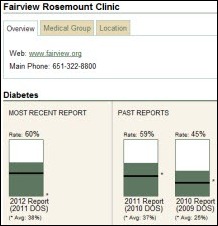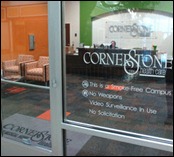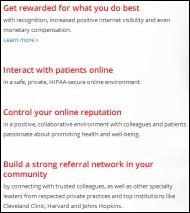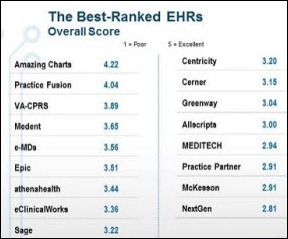News 9/6/12
Greenway Medical Technologies certifies Patient Prompt’s patient communication solution for use with PrimeSUITE. Greenway’s PrimeLEADER 2012 user conference, by the way, begins Thursday at the Gaylord Palms Resort in Orlando.
Today’s young doctors embrace technology and teamwork, according to this AP article. Unlike older generation physicians, Gen X physicians want a life outside of work, rely heavily on EMRs and smartphone apps, and like sharing the load with other doctors. Thirty-two year-old medical resident Emal Nasiri is not unlike many of his peers:
He likes the idea of working in a large health plan group where doctors, specialists and other medical staff work as teams, with easy access to patients’ electronic medical records. That kind of setup is more likely to be “wired’’ than smaller practices, and Nasiri can’t imagine working without his iPad.
Most physicians and staff are concerned with the transition to ICD-10 and its potential impact on operations and finances, according to a Nuesoft Technologies report. Of the 480 physicians, administrators, and billing staff participating in Nuesoft’s survey, 96% say they are concerned and 60% indicated they are significantly or highly concerned. Also from Nuesoft: a video highlighting the challenges facing medical practices today.
In a letter to CMS regarding the proposed 2013 fee schedule, MGMA urges CMS to combine its e-prescribing incentive program and the EHR incentive program. MGMA says that the duplicate requirements “unfairly penalize providers,” even with proposed hardship exemptions and recommends that all providers meeting MU requirements automatically receive PQRS bonus credit for e-prescribing.
Over the weekend we published a new post from our HIStalk Practice Advisory Panel. We asked providers about patient volumes and the impact of EMRs and other technologies and the anticipated impact of the Affordable Care Act. Interestingly – and perhaps surprisingly to some policy makers – the potential for additional income may not be adequate motivation for primary care physicians to work harder and see more patients. It could be a Gen X/life balance thing as the above AP article suggests, or it could be that physicians are already working at capacity. As one of our physician members noted, “There may be some who have a little room for growth, but most every PCP I know is pretty much stretched as thin as they’re capable of being stretched.” Your comments are welcome and appreciated.
Surescripts acquires Kryptiq, a company in which Surescripts had invested $8 million in 2010 for a 21% share. Surescripts uses Kryptiq’s secure messaging technology for its network. Other healthcare IT vendors are also among its customers (GE Healthcare and Vitera), and its other offerings include clinical messaging, a patient portal, and electronic prescribing. Kryptiq announced earlier this year that its revenue grew 60% and its user count exceeded 40,000.



















The article about Pediatric Associates in CA has a nugget with a potentially outsized impact: the implication that VFC vaccines…